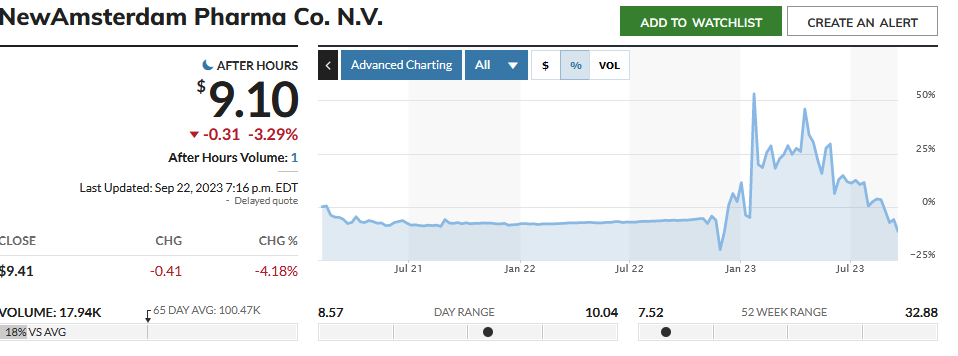Blocking Cholesterol Transfer for Alzheimer’s Disease
Fantastic story about CETP inhibition via ApoA1 mechanism on Alzheimer’s disease risk for ApoE4 carriers on NewAmsterdam Pharma’s website:
Alzheimer’s disease is the most prevalent form of dementia and is the fifth leading cause of death in adults aged 65 years and older in the United States. As populations age worldwide, the global burden of dementia including Alzheimer’s disease is expected to triple by 2050.⁷ The global cost of dementia care was estimated to be $1 trillion in 2018 and is expected to increase to roughly $2 trillion by 2030.⁸
Alzheimer’s disease is characterized by:
Extracellular plaques
Amyloid-beta (Aβ) peptides
Intracellular neurofibrillary tangles
Hyperphosphorylated tau and microtubules
Elevated cholesterol levels have been linked to increased risk of Alzheimer’s disease later in life. New biology shows us cholesterol accumulation in the brain precedes disease onset and may cause amyloid protein cleavage leading to Aβ plaque deposition.
Robust genetic and preclinical mechanism. Moreover, recent genetic findings are now elucidating this story. Approximately 60% of Alzheimer’s disease patients carry a defective copy of the gene encoding for apoliprotein E (ApoE). In healthy individuals, the ApoE gene is responsible for regulating excess cholesterol levels and Aβ plaques in the central nervous system (CNS). However, the protein encoded by the ApoE4 variant is significantly hampered in performing this job, and thus these patients are hampered in their ability to clear cholesterol or Aβ plaques effectively, leading to cholesterol and eventually Aβ accumulation in CNS. We now know patients with loss-of-function mutations in the CETP gene are protected from the increased Alzheimer’s disease risk associated with also carrying an ApoE4 mutation, and we are armed with preclinical evidence showing that CETP inhibition can reverse cholesterol accumulation and associated cognitive impairment in mice. Armed with this exciting data, NewAmsterdam has initiated a Phase 1 program to test obicetrapib’s effect on the lipid profile of the brain and its corresponding ability to appropriately clear cholesterol from cells in the brain.
How does CETP inhibition fit into the Alzheimer’s disease story?
People with CETP loss-of-function mutations appear significantly protected from Alzheimer’s disease, especially in patients who carry a copy of the ApoE ε4 gene.
It is believed that increasing ApoA1 levels in the blood increases the amount of ApoA1 that crosses the blood-brain barrier.
ApoA1 in the brain also clears cholesterol via the same mechanism as healthy ApoE proteins.
Obicetrapib has been shown to substantially increase ApoA1 levels in the body, and we are now initiating a proof-of-concept study intended to show this also drives increase in ApoA1 levels in the brain.
We believe that by increasing ApoA1 in the brain via CETP inhibition with obicetrapib we can restore healthy clearance of cholesterol out of the brain so that it can be cleared by the liver.
https://www.newamsterdampharma.com/therapeutic-areas#alzheimers



